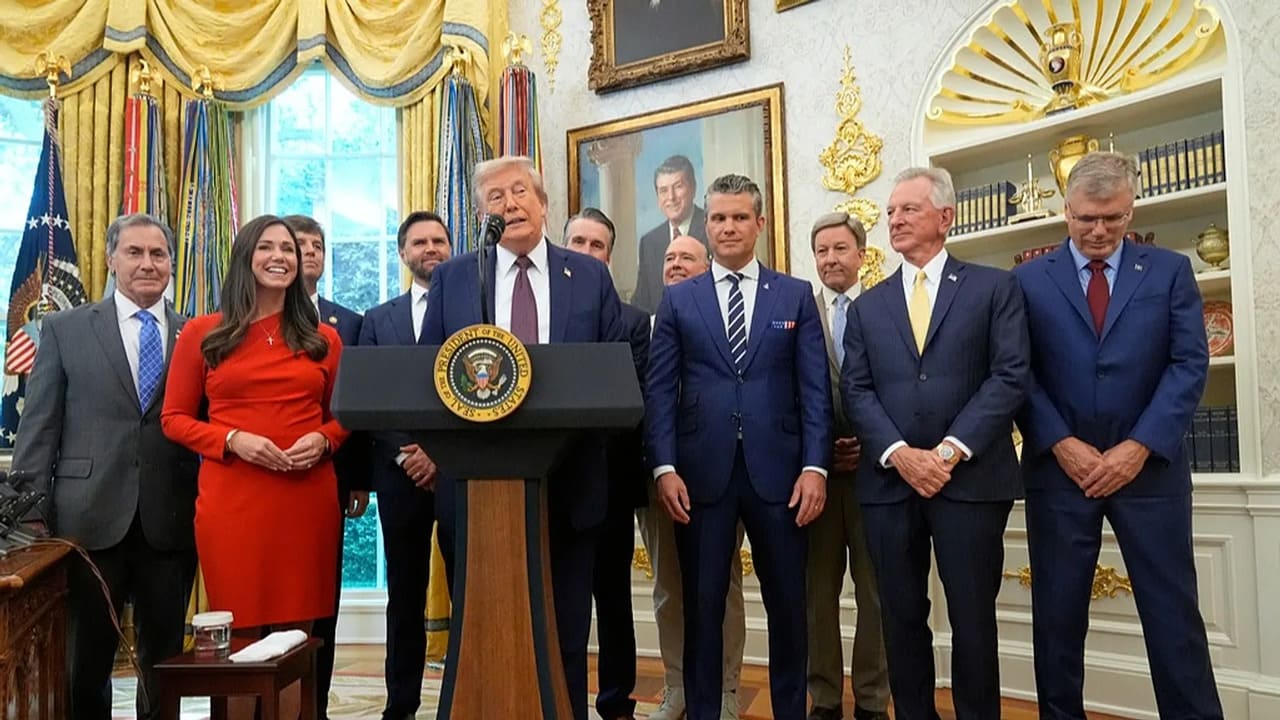
IndependentReport – In recent weeks, the United States has intensified its military presence in the southern Caribbean. Warships, surveillance aircraft, and even nuclear submarines were deployed as part of a broader campaign to crack down on cross-border drug trafficking. Washington framed the effort as a direct response to the rising influence of Venezuelan Vessel based criminal networks that use maritime routes to funnel narcotics into North America.
On September 2, 2025, that campaign escalated into a lethal incident. A fast boat allegedly linked to drug smuggling was struck by US forces, leaving 11 people dead. President Donald Trump personally confirmed the operation from the White House, stating that the vessel was “loaded with narcotics” and declaring that the individuals killed were “terrorists.” No US personnel were harmed during the strike, he added.
American officials asserted that the people on board were tied to Tren de Aragua. A Venezuelan gang that has grown into one of Latin America’s most feared transnational criminal organizations. Earlier this year, the group was formally design by Washington as a terrorist entity. Which allowed the US military to treat its members as legitimate combatants.
Trump argued that the strike was a warning not just to Tren de Aragua, but to all criminal groups using the Caribbean as a trafficking hub. He said the operation demonstrated America’s willingness to act decisively against anyone who “threatens our borders and poisons our communities with drugs.” His remarks underscored a new, more militarized approach to counter-narcotics operations in the region.
Also Read : Chicago Protesters Reject Federal Threats of ICE and National Guard Deployment
The announcement immediately triggered widespread debate among human rights experts, security analysts, and regional governments. Critics warned that destroying a Venezuelan Vessel on suspicion of smuggling amounted to an extrajudicial killing. More reminiscent of counterterrorism tactics than conventional law enforcement.
Venezuelan officials reacted with outrage. Communications Minister Freddy Ñáñez publicly questioned the authenticity of a video shared by Trump on social media. Suggesting that the footage might have been artificially generate. While Reuters analysis found no evidence of manipulation, the claim deepened tensions and highlighted the information war surrounding the incident.
The strike did not only kill 11 alleged traffickers; it also raised fundamental questions about legality, proportionality, and ethics. Analysts pointed to several areas of concern:
These points have become central to the global debate on whether the United States has blurred the line between counter-narcotics operations and military interventions.
The timing of the strike comes at a moment of heightened strain between Washington and the government of Nicolás Maduro. Venezuelan Vessel condemned the operation as a violation of its sovereignty, accusing the US of carrying out an unprovoked attack in international waters. Caracas also warned that such actions could destabilize the broader region.
For the US, however, the strike served as a demonstration of its capacity to enforce its policies beyond its borders. Trump emphasized that the fight against narcotics required firm and uncompromising measures. His administration framed the operation as a clear message to transnational gangs that the United States will use military power if necessary.
The broader significance of the incident lies in the precedent it sets. By using lethal force against suspected smugglers, the US risks normalizing military strikes in contexts that traditionally fall under civilian law enforcement. Advocates argue that such steps are necessary to combat highly armed criminal organizations that operate like insurgent groups.
Yet detractors insist that suspicion of drug trafficking should never amount to a death sentence. Human rights observers stress that the rule of law must remain central, even when confronting violent networks. Without clear legal safeguards, they warn, future operations could erode accountability and invite retaliation.